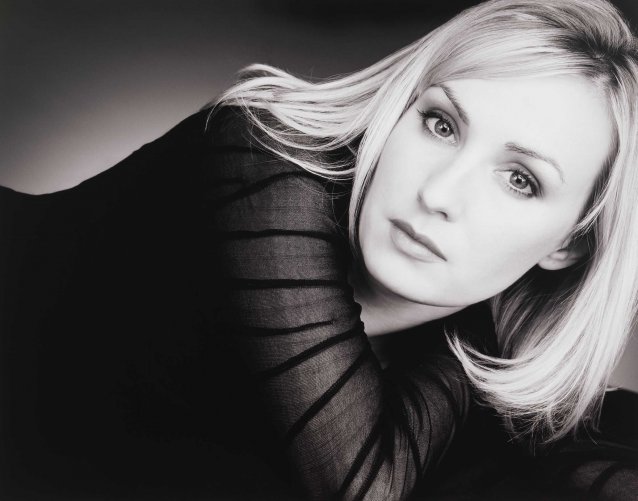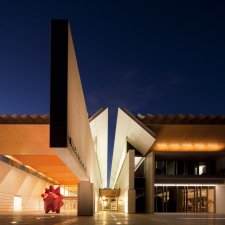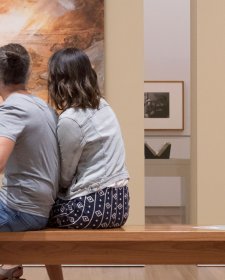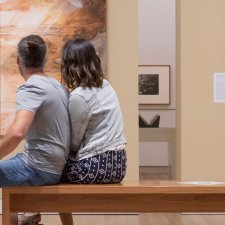- I think for me, growing up in WA, which is actually a very remote place, and so, I mean, as far as the arts were when I was growing up, I did singing and dancing classes and then I started doing local repertory theatre. And I think probably the turning point for me was when one evening at the Playhouse Theatre in Perth, we were doing a performance of a number from the "Wizard of Oz" which I was playing Dorothy at the time, and I was singing on stage and I was singing "Somewhere Over the Rainbow" right at the end of the night. And Dr. Geoffrey Gibbs, who was running WAAPA at the time, said, "If that little girl that sang wants to come and have a chat to me, I'd like to talk to her about coming to the academy." So I did end up finishing high school and going to WAAPA and training for three years and then I came to the Eastern States and I was fortunate enough to get a great agent and started auditioning and just doing theatre and picking up work here and there and then auditioned for "Blue Heelers" Channel Seven at that stage. And I'd shot a couple of comedy pilots for Channel Seven and either I wasn't used or the shows didn't go and then I finally got Blue Heelers and I got it and it went and it found its audience and it found its place and it found its way into so many people's hearts which I was working on it so hard, I didn't really understand what it was doing and how it was being perceived. And, yeah, it was remarkable reflecting on it. It was, I mean, a great time for me professionally. I was working with different directors every week. I was working with a great crew of people. Loved working with cameras and the technical side and working with some of the best actors in the country who'd be flowing through the door every week. And so it was a really great training ground for me. I think it was a really significant moment for me leaving Blue Heelers and doing "The Sound of Music" on stage because it was just so successful. But, of course, Julie Andrews had already, you know, trod that road and finding a unique way through that. But I guess the reception of that show was so huge. Yeah, influences. They're really important things, aren't they? And I find myself, I've always read a lot of biographies, and I always zero in on what it is that influence people. And I think that creative arts relies on that so heavily. I think it's important to generate your own style but we do, I lean on people's stories a lot over the years and, you know, whether you be an actor, a photographer, I guess, a writer, a filmmaker, whatever your path is. Fortunately in my career I've crossed paths early with people like Ruth Cracknell and Helen Morse and I'm working with Peter Carroll at the moment, and, ah gee, you can't, I could not have wished for a more significant group of people whose kindness and willingness to share their craft and their wisdom is extraordinary. And the higher up the tree they are, the more they share. Yeah, I love working in theatre and I love working in film and television. They're both such different disciplines for a performer. Television and film is, it's highly technical. You do much shorter bursts of work. Theatre, much more organic, but just discipline that's a different one. You sustain performance for, you know, I guess it could be a short burst to three hours. You know, you have to sustain performance and you've gotta carry that audience who's in the room with you. They're there, it's immediate. The Tuesday night audience is different to a Saturday night audience. You don't know where they've been that day. The weather outside might affect them. It could be chilly in the theatre. The piece is very different. And there's kind of this in-the-moment manipulation that starts to happen in theatre. You get to play in that environment and it's quite powerful. I think in any artistic venture, there's no set path. We can go to drama schools, we can have good agents, we can try and tread the path someone else has, but the outcome will never be the same. Our journeys are particular and the individual. And don't listen to anybody that says you can't because there is a way forward. And sometimes we have to go off the path we thought we'd go on. And that's okay, too, because it will inform us along the way. Yeah, but you've gotta be passionate.














